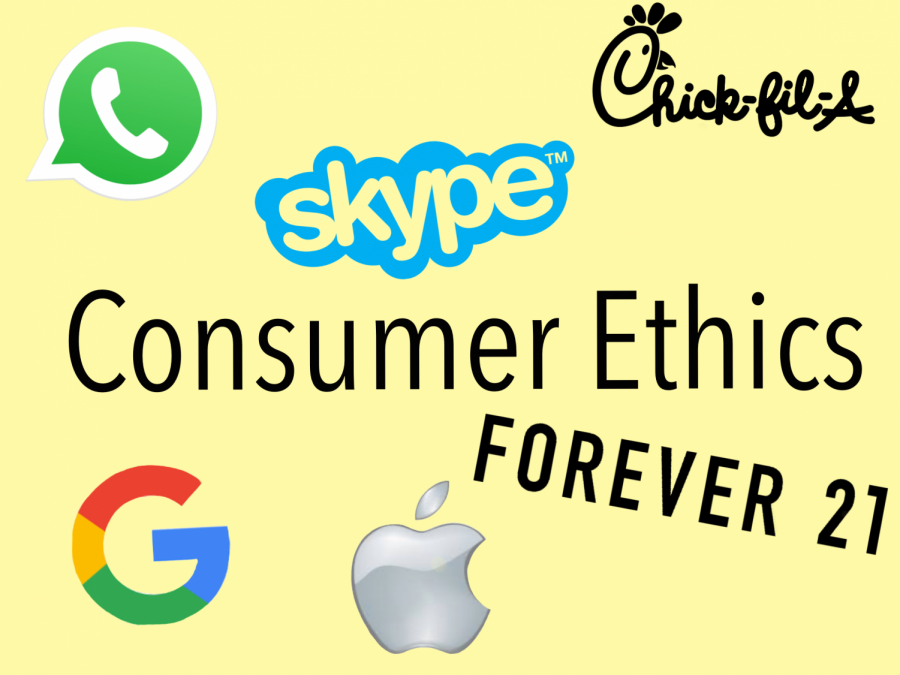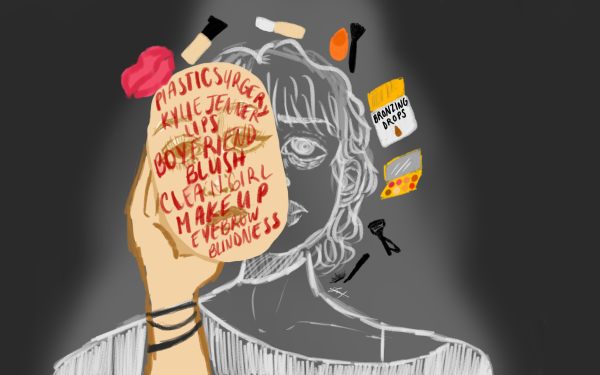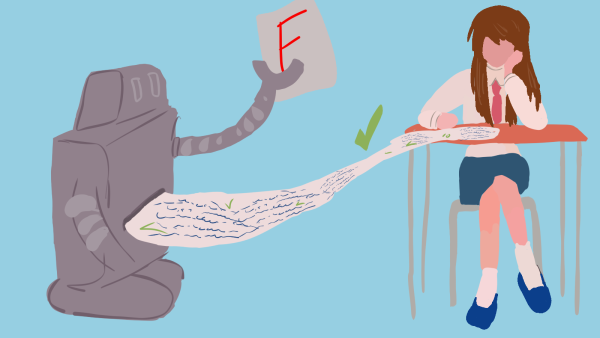[Opinion] People need to put their pockets where their morals are
Companies such as Chick-Fil-A, Google, and Forever 21 have made their political beliefs public. Consumers are deciding whether or not they want to support those companies. Graphic by Rayne Welser
After the GameStop short squeeze spiked interests in the stock market, more and more people are partaking in investing and finance. Due to this increase, consumer ethics has become an important topic to speak on and understand.
Consumer ethics deals with the morality of consumer services, products and investments. At its basic level, consumer ethics is a way of spending money to illustrate what issues you care about. For example, buying from a thrift shop instead of a department store can predict that you care about the environment and reducing your carbon footprint.
Not shopping at certain stores and businesses due to a disagreement with their beliefs and morals is a way to use your money effectively and rebel against that business by not allowing them to take your money and profit off of your ignorance.
Particular companies have made their beliefs loud and proud, such as Chick-Fil-A for donating to anti-LGBTQ causes and Forever 21 for contributing to fast fashion, which is a major profiting company that inexpensively produces trendy products. Fast fashion leaves a detrimental carbon footprint which makes up about 10% of the world’s carbon emissions. People who don’t agree with these brands and their beliefs simply choose not to shop there.
Often when shopping, either online or in-store, people pay little attention to the effect that buying that product or service has. Most of the time, there are unforeseen consequences that a certain product or service might have. And even if others did know, most would just ignore it, instead of acting upon it. Major corporations are the main concern of consumer ethics.
A common tactic applied by major corporations is outsourcing, which is manufacturing and employing individuals in a different country than the company is based in. As a result of outsourcing their labor, companies will maximize profit. Labor is much cheaper in less economically advanced countries. This is why most of the time you buy something, it is usually fabricated in China as opposed to the United States. Some examples of companies that outsource labor are Google, Apple, Alibaba, WhatsApp, Skype and many more.
However, a major downside of outsourcing labor is that employment conditions are usually poor. Employees make below minimum wage, struggling to survive off their bank accounts. In some cases, corporations will spend on average about $150-200 a year on individual employees.
So while the company is making big bucks, these employees are working in poor conditions and living off of a salary below minimum wage. This raises the question on the ethicality of outsourcing labor, is it worth putting people at risk for profit.
Another key issue when considering consumer ethics is how a society can do good from its pockets. If people can choose to spend more for higher quality and better impact, why wouldn’t they?
The answer to that is not always simple, some individuals are not privileged enough to be in a position where the ethics of a product or business is a concern. Moreover, not all countries and places in the world have ethical options.
The fewer people supporting companies that contribute to terrible conditions for employees, the less profit the company will bring, which could eventually cause the company to shut down and close its outsourcing processes.
Once people realize that they can make a change from their pockets and use their voice through their credit cards, they will make a huge impact. Consumer ethics forces people to think less about their pockets and more about other incoming factors. By understanding this, society can become better consumers and people.
Your donation will support the student journalists of Marjory Stoneman Douglas High School. Your contribution will allow us to purchase equipment and cover our annual website hosting costs.

Briana Martin is a sophomore at Marjory Stoneman Douglas High School. She is a second year writer for the Eagle Eye. In her free time, Briana enjoys reading...

Sofia Schorer Kaplan is a junior at Marjory Stoneman Douglas High School and a Social Media Editor for the Eagle Eye. In her free time, Sofia likes to...

Rayne Welser is a senior at Marjory Stoneman Douglas High School and the Executive Editor-in-Chief for Eagle Eye News. She loves music, reading, and photography....






